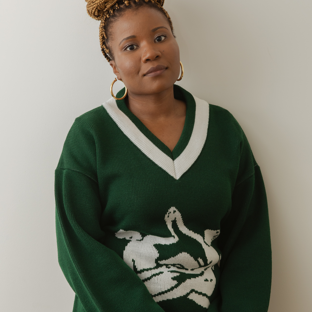In 2017, the Victorian Government released a report on the impact of racism on the health of people who live in the state. The study – which included interviews with more than 33,000 Victorians – confirmed what many studies around the world had already concluded: racism is literally bad for your health.
In this conversation, we'll look at how and why racism impacts minds and bodies – discussing internalised prejudice, shortcomings in the training and recruitment of medical professionals and institutionalised discrimination in the healthcare system.
Our panellists will discuss the unique and historical impacts of racism on Indigenous Australians and the strategies for addressing these specific challenges. They’ll also talk through racial discrimination more broadly, as it affects non-English speaking Australians and Australians from non-European backgrounds. What are the barriers to progress and how can we do better?
Featuring

Santilla Chingaipe
Santilla Chingaipe is a filmmaker, historian and author, whose work explores settler colonialism, slavery, and postcolonial migration in Australia. Chingaipe’s critically acclaimed and award-winning documentary Our African ...

Adele Murdolo
Adele is from an Italian migrant background and has led the Multicultural Centre for Women’s Health as its Executive Director for 17 years. She has a PhD in History and Women’s Studies, and her research and publication areas include women’s health, violence against women and feminist history and activism in Australia. Adele is a passionate speaker and advocate for building the status of immigrant and refugee women through research, practice and policy. As Executive Director, she provides strong leadership, expert advice and input into policy.

Lyn Morgain
Lyn Morgain is the Chief Executive of cohealth, Victoria’s largest community health organisation. Lyn has been an executive leader in public policy, not for profit organisations and government over the past twenty five years, holding community well being, planning, governance and community service portfolios. She is a sought after facilitator, chair and speaker and has published numerous journal articles on primary care and the social determinants of health. She is passionate about strength based approaches that engender community ownership and control over service design, development and delivery.
As part of the leadership of cohealth she is responsible for supporting the delivery of a diverse range of complex social and clinical service models that engage communities with poor health status, utilising a social model of health. Increasingly these programs are integrated, locally orientated and designed in partnership with consumers. Her interests include the impact of discrimination, stigma and marginalisation on health and the role of advocacy in the development of equitable public policy and consumer led practice. Lyn has extensive experience in the initiation and execution of community alliances aimed at effecting change, at the local, state and national level.
Lyn is a member of the Victorian Justice Health Ministerial Advisory Committee and the Community Health Taskforce. She sits on the board of the Footscray Community Arts Centre and is the interim Chair of the national Social Determinants of Health Alliance.

Janine Mohamed
Janine Mohamed is a proud Narrunga Kaurna woman from South Australia. Over the past 20 years, she has worked in nursing, management, project management, and workforce and health policy in the Aboriginal and Torres Strait Islander health sector. Many of these years have been spent in the Aboriginal Community Controlled Health Sector at state, national and international levels, most recently as the CEO at the Congress of Aboriginal and Torres Strait Islander Nurses and Midwives (CATSINaM). Internationally, Janine has been a delegate at the UN Permanent Forum on Indigenous Issues on two occasions. She is now based in Melbourne where she is the CEO of the Lowitja Institute. Janine was awarded a 2019 Atlantic Fellows for Social Equity Fellowship.
